In this article, you will learn about the possibility of removing negative items from your credit report, specifically late payments or collections. Many people want to improve their credit score and have a clean credit report, so finding out if this is possible is important.
The answer is yes, it is possible to remove negative items from your credit report. However, it may not be easy, and it requires some effort on your part. You can start by reviewing your credit report and identifying any inaccurate or incorrect information. If you find any errors, you can file a dispute with the credit bureaus and provide the necessary documentation to support your claim. Additionally, you can negotiate with creditors to remove negative items by offering a payment plan or settling the debt. It is important to note that removing genuine late payments or collections may be more challenging, but it is still worth trying to improve your credit report.
Understanding Credit Reports
What is a credit report?
A credit report is a detailed record of an individual’s credit history. It provides information about the person’s credit accounts, payment history, and any negative items or derogatory marks on their credit record. Credit reports are compiled by credit bureaus, which collect data from various sources such as lenders, credit card companies, and public records.
What information does a credit report include?
A credit report typically includes personal information such as name, address, social security number, and date of birth. It also includes a list of credit accounts, including credit cards, loans, mortgages, and any other credit obligations. The report shows the payment history for each account, including the dates and amounts of payments made. Additionally, it includes public records such as bankruptcies, tax liens, and judgments.
Why is a credit report important?
A credit report is important because it serves as a comprehensive record of an individual’s creditworthiness. Lenders, landlords, employers, and insurance companies often review credit reports to assess a person’s financial responsibility and determine whether to extend credit, offer rental housing, provide employment, or offer insurance coverage. A positive credit report reflects responsible financial behavior and can lead to better interest rates, increased chances of loan approvals, and improved financial opportunities.
How are negative items reflected in a credit report?
Negative items on a credit report can have a significant impact on an individual’s creditworthiness. Late payments, collections, bankruptcies, and other derogatory marks can lower a person’s credit score and make it more difficult to obtain credit in the future. These negative items are typically indicated on the credit report with specific details, such as the dates of missed payments or the amounts owed to collection agencies.
Impact of Negative Items on Credit Reports
How do late payments affect credit reports?
Late payments can have a detrimental effect on credit reports. When an individual fails to make a payment on time, the late payment is reported to the credit bureaus and reflected on their credit report. The severity of the impact depends on the number of late payments, the length of time they are overdue, and the amount owed. Late payments can stay on a credit report for up to seven years, negatively affecting the individual’s credit score and making it harder to obtain credit.
What are collections and how do they impact credit reports?
Collections occur when an individual fails to repay a debt, and the creditor sells the debt to a collection agency. Collections can have a significant impact on credit reports. The collection account is listed on the credit report, indicating the amount owed and the name of the collection agency. Like late payments, collections can stay on a credit report for up to seven years, lowering the credit score and making it challenging to obtain credit.
Other types of negative items on credit reports
In addition to late payments and collections, credit reports may include other negative items such as bankruptcies, tax liens, judgments, and foreclosures. These derogatory marks can have a severe impact on credit reports and credit scores. Bankruptcies, for example, can stay on a credit report for up to ten years, while tax liens and judgments may remain for up to seven years. These negative items signify financial struggles or failures to meet financial obligations, making it harder to access credit in the future.
How long do negative items stay on credit reports?
The length of time that negative items stay on credit reports varies depending on the type of item. Here is a general timeline for some common negative items:
- Late payments: Up to seven years.
- Collections: Up to seven years.
- Bankruptcies: Up to ten years.
- Tax liens: Up to seven years.
- Judgments: Up to seven years.
It’s important to note that negative items may have less impact on credit scores as time passes. Lenders often focus more on recent credit history than on past negative items. However, these negative items can still be considered by lenders when making credit decisions, even if they have aged.
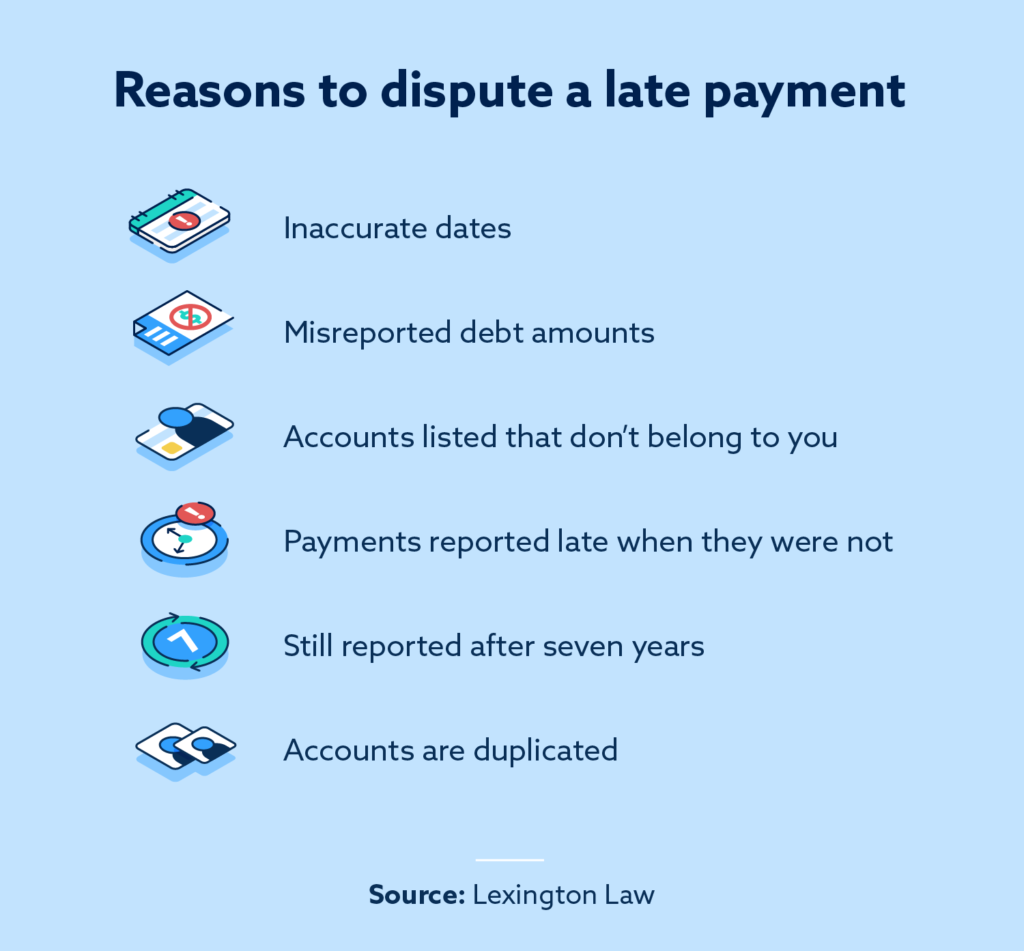
This image is property of www.lexingtonlaw.com.
The Process of Removing Negative Items
Requesting a copy of your credit report
To begin the process of removing negative items from your credit report, it is crucial to obtain a copy of your credit report from each of the major credit bureaus: Equifax, Experian, and TransUnion. You can request a free copy of your credit report once every twelve months from each bureau through AnnualCreditReport.com. Reviewing your credit report from all three bureaus is important because the information may vary, and it allows you to identify any discrepancies or errors.
Reviewing your credit report for errors
Once you have received your credit reports, carefully review them for any errors or inaccuracies. Look for incorrect account balances, duplicate accounts, inaccurate payment histories, or any other discrepancies. If you find any errors, you have the right to dispute them with the credit bureaus to have them corrected or removed.
Disputing inaccurate negative items on your credit report
If you discover any inaccurate negative items on your credit report, you have the right to dispute them with the credit bureaus. You can initiate a dispute by contacting the credit bureau in writing or online, providing the necessary documentation or evidence to support your claim. The credit bureau will then investigate the dispute and either confirm the accuracy of the negative item or remove it from your credit report.
The role of credit bureaus in removing negative items
Credit bureaus have the responsibility of maintaining accurate and up-to-date credit reports. As such, they are required to investigate any disputes and remove inaccurate information if it cannot be verified. However, it is important to note that credit bureaus are not required to remove accurate negative items just because they are negative. Negative items that are verified to be accurate will remain on your credit report for the specified time period.
Working with Credit Repair Companies
What are credit repair companies?
Credit repair companies are organizations that offer services to help individuals improve their credit scores and remove negative items from their credit reports. These companies often claim to have the knowledge and expertise to negotiate with creditors, dispute inaccurate information, and navigate the credit reporting system on behalf of their clients. However, it is important to approach credit repair companies with caution and understand their limitations.
How do credit repair companies help in removing negative items?
Credit repair companies typically offer services such as reviewing credit reports, identifying negative items, and disputing inaccuracies on behalf of their clients. They may also provide guidance on improving credit scores, managing debt, and establishing positive credit habits. Some credit repair companies have established relationships with creditors and collection agencies, enabling them to negotiate settlements or payment arrangements on behalf of their clients.
Understanding the limitations of credit repair companies
While credit repair companies can provide assistance in removing negative items, it is important to understand their limitations. Credit repair companies cannot remove accurate negative information from your credit report. They cannot change or manipulate your credit history or guarantee specific results. It is also crucial to be aware of potential scams and fraudulent practices within the credit repair industry. Research and choose reputable credit repair companies that adhere to ethical standards and provide transparent information about their services and fees.
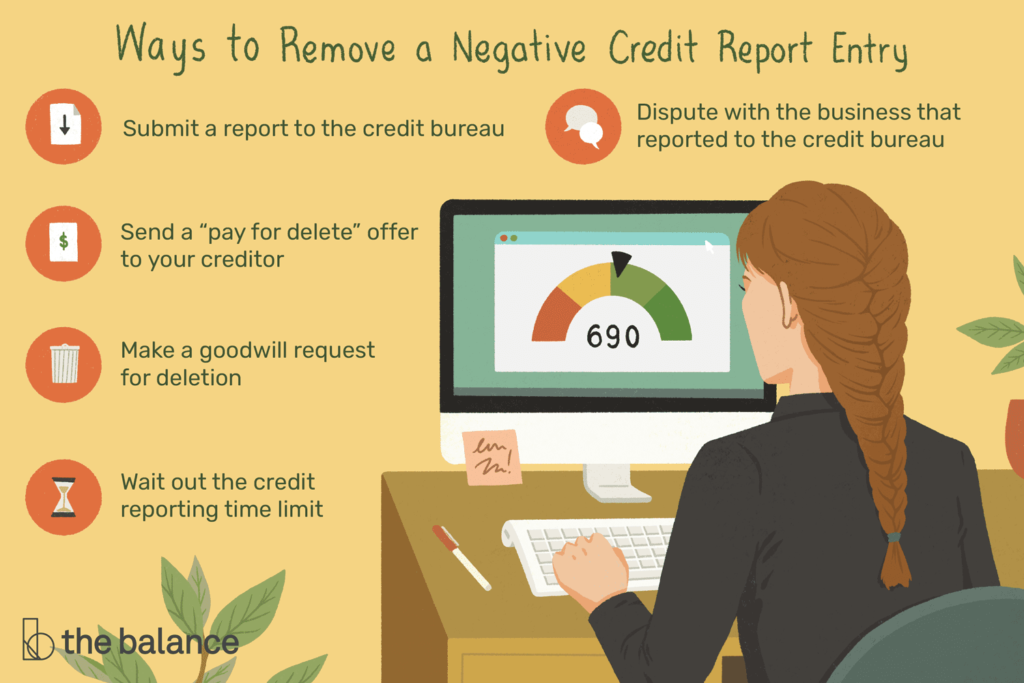
This image is property of www.thebalancemoney.com.
Taking Action to Improve Your Credit
Establishing a positive payment history
One of the most effective ways to improve your credit is to establish a positive payment history. Make all payments on time, including credit card bills, loan installments, and other financial obligations. Late payments can have a significant negative impact on your credit, so it is important to prioritize timely payments. Consider setting up automatic bill payments or reminders to ensure that you never miss a payment.
Managing your credit utilization
Credit utilization refers to the amount of credit you are using compared to your available credit. It is recommended to keep your credit utilization ratio below 30%. High credit utilization can signal financial instability and negatively impact your credit score. To manage your credit utilization, avoid maxing out your credit cards and pay down existing balances. Consider spreading out your charges across multiple credit accounts to keep individual balances low and demonstrate responsible credit usage.
Building a strong credit mix
Having a diverse mix of credit accounts can positively influence your credit score. Credit scoring models consider various types of credit, such as credit cards, loans, and mortgages, when determining your creditworthiness. Having a mix of revolving credit (like credit cards) and installment credit (like loans) can demonstrate your ability to handle different types of debt responsibly. However, it is important to only take on credit that you can manage and repay consistently.
Keeping track of your credit report regularly
Regularly monitoring your credit report is essential for staying informed about your credit status and identifying any changes or inaccuracies. Keep a close eye on your credit reports from all three major credit bureaus. Review the information, verify the accuracy of the details, and address any discrepancies or errors promptly. Monitoring your credit report can help you detect potential identity theft, as well as track your progress in improving your credit over time.
Potential Challenges in Removing Negative Items
Valid negative items that cannot be removed
While it is possible to remove inaccurate negative items from your credit report, valid negative items that are accurate and complete cannot be removed. Late payments, collections, bankruptcy filings, and other negative items that are reported correctly by creditors or collection agencies will remain on your credit report for the specified time frames outlined earlier. It is important to focus on rebuilding credit and establishing positive financial habits despite the presence of these negative items.
Legal actions and bankruptcy
Legal actions such as bankruptcies, tax liens, and judgments can have a long-lasting impact on credit reports. Bankruptcies can stay on your credit report for up to ten years, and tax liens and judgments for up to seven years. These legal actions are usually significant and can severely affect your creditworthiness. It is important to seek professional advice in these situations and understand the potential consequences of such actions on your credit.
Negative items from identity theft or fraud
If you become a victim of identity theft or fraud, negative items may appear on your credit report that are not a result of your own actions. In these cases, it is important to take immediate action to protect yourself and your credit. Contact the credit bureaus and the creditors involved, report the fraudulent activity, and request that the negative items be removed from your credit report. Provide any supporting documentation or evidence to support your claim.
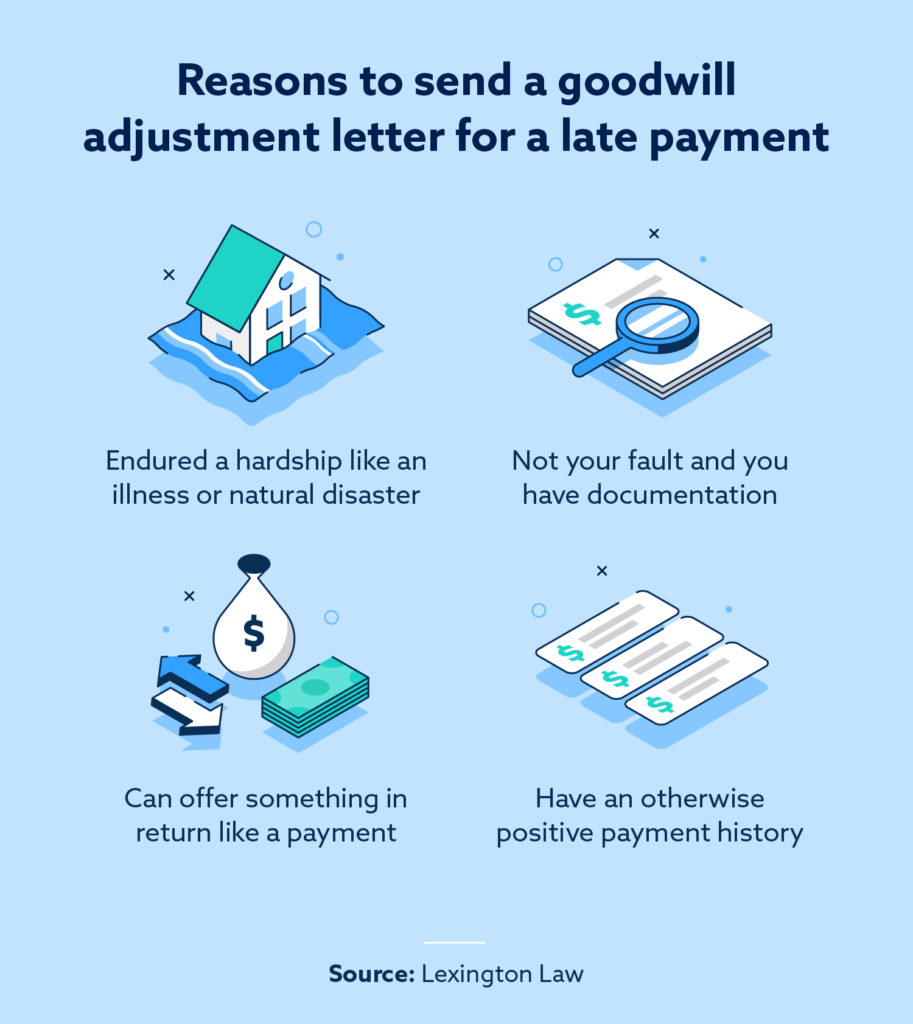
This image is property of www.lexingtonlaw.com.
Seeking Professional Advice
Consulting with credit counselors
Credit counselors are professionals who can provide advice and assistance in managing credit, debt, and personal finance. They can help you create a budget, develop a repayment plan, and provide guidance on improving your credit. Credit counseling agencies are typically non-profit organizations that offer their services either for free or at a nominal fee. Consider consulting with a credit counselor to gain valuable insights and guidance tailored to your specific financial situation.
Hiring a credit attorney
In cases involving complex credit issues, legal actions, or cases of identity theft, hiring a credit attorney may be necessary. Credit attorneys specialize in credit law and can provide legal advice, representation, and assistance throughout the credit repair process. They can help you navigate the legal aspects of credit reporting, negotiate settlements with creditors, or represent you in court if necessary.
Understanding the cost and benefits of professional assistance
When considering professional assistance in credit repair, it is essential to understand the associated costs and benefits. Credit repair companies, credit counselors, and credit attorneys may charge fees for their services. Evaluate the potential benefits of their assistance compared to the costs involved. Determine if the assistance outweighs the potential impact on your credit score and financial situation.
The Importance of Patience and Persistence
Realistic expectations in the process
It is important to set realistic expectations when it comes to removing negative items from your credit report. The process can take time, and there are no guarantees of immediate results. Understand that not all negative items can be removed, especially those that are accurate and complete. Focus on rebuilding credit and establishing positive financial habits to improve your creditworthiness over time.
Giving enough time for changes to reflect in credit reports
Once you have taken steps to remove or correct negative items on your credit report, it is important to give the credit bureaus enough time to update the information. Changes to credit reports may not occur immediately, and it can take several weeks or even months for updates to reflect on your credit report. Be patient and regularly monitor your credit reports to ensure that the necessary changes have been made.
Maintaining responsible credit behavior
While working on improving your credit and removing negative items, it is crucial to maintain responsible credit behavior. Make all payments on time, keep your credit utilization low, and avoid taking on unnecessary debt. Demonstrating responsible financial habits over time will improve your creditworthiness and increase your chances of accessing better interest rates, securing loan approvals, and enjoying enhanced financial opportunities.
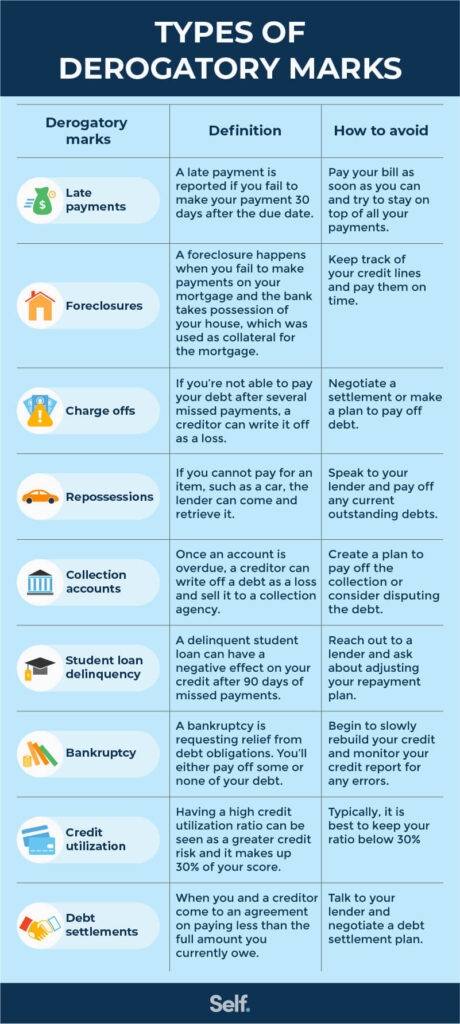
This image is property of images.ctfassets.net.
Benefits of Improving Your Credit
Access to better interest rates
Improving your credit can lead to access to better interest rates on loans, mortgages, credit cards, and other forms of credit. Lenders usually offer lower interest rates to individuals with good or excellent credit scores, as they are considered less risky borrowers. By improving your credit, you can save money in the form of reduced interest charges over time.
Increased chances of loan approvals
A positive credit report and an improved credit score can significantly increase your chances of loan approvals. Lenders consider your creditworthiness when evaluating loan applications, and a strong credit profile can make you a more favorable candidate. Whether you are applying for a mortgage, an auto loan, or a personal loan, an improved credit history can give you a competitive edge and increase your chances of approval.
Improved financial opportunities
Having a positive credit report can unlock various financial opportunities. It can make it easier to rent an apartment, secure a job, obtain insurance coverage, or start a business. A strong credit profile demonstrates financial responsibility and reliability, making you a more trustworthy candidate for various financial transactions and opportunities.
Conclusion
Is it possible to remove negative items like late payments or collections from your credit report? While it is possible to remove inaccurate negative items and improve your credit, valid negative items that are accurate and complete will remain on your credit report for the specified time periods. It is important to understand the process of removing negative items, take proactive steps to improve your credit, and recognize the long-term advantages of a positive credit report.
By understanding credit reports, reviewing and disputing inaccuracies, and working on establishing positive credit habits, you can gradually improve your creditworthiness. It is important to be patient, persistent, and realistic in your expectations. Seek professional advice when necessary, monitor your credit report regularly, and take actions that demonstrate responsible credit behavior. With time and effort, you can improve your credit and enjoy the benefits of a positive credit report.
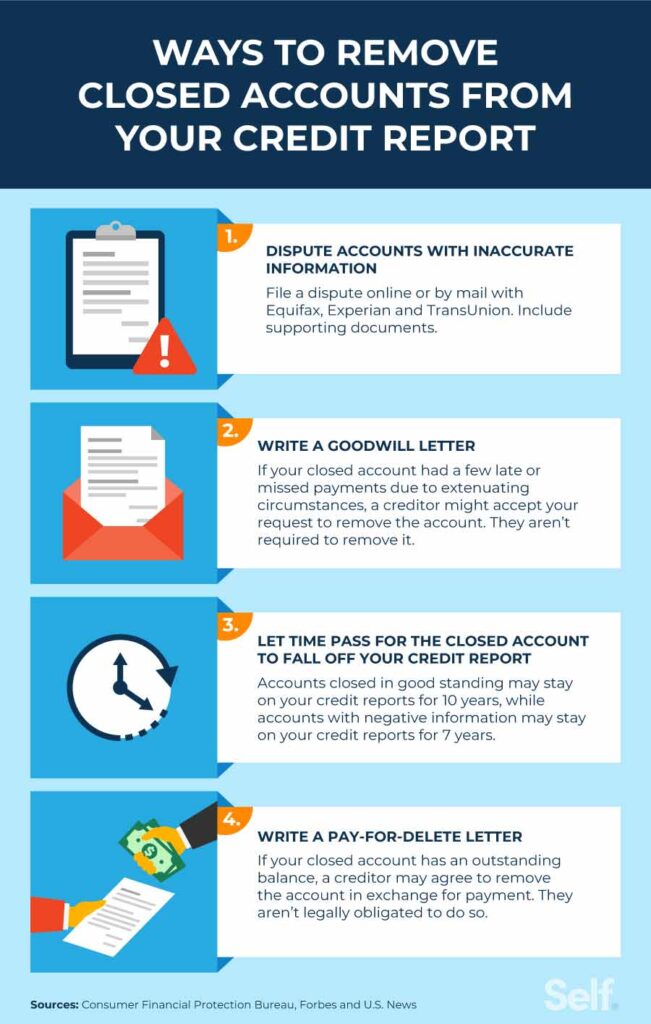
This image is property of images.ctfassets.net.
